There are as many as 15 different credit card frauds happening around the world, even as you read this article. And it’s quite likely you’re already a victim or could be affected anytime unless you take special precautions.
Maybe this would surprise you: credit card frauds are extremely common and very easy for criminals. Therefore, let’s understand the reasons for credit card fraud.
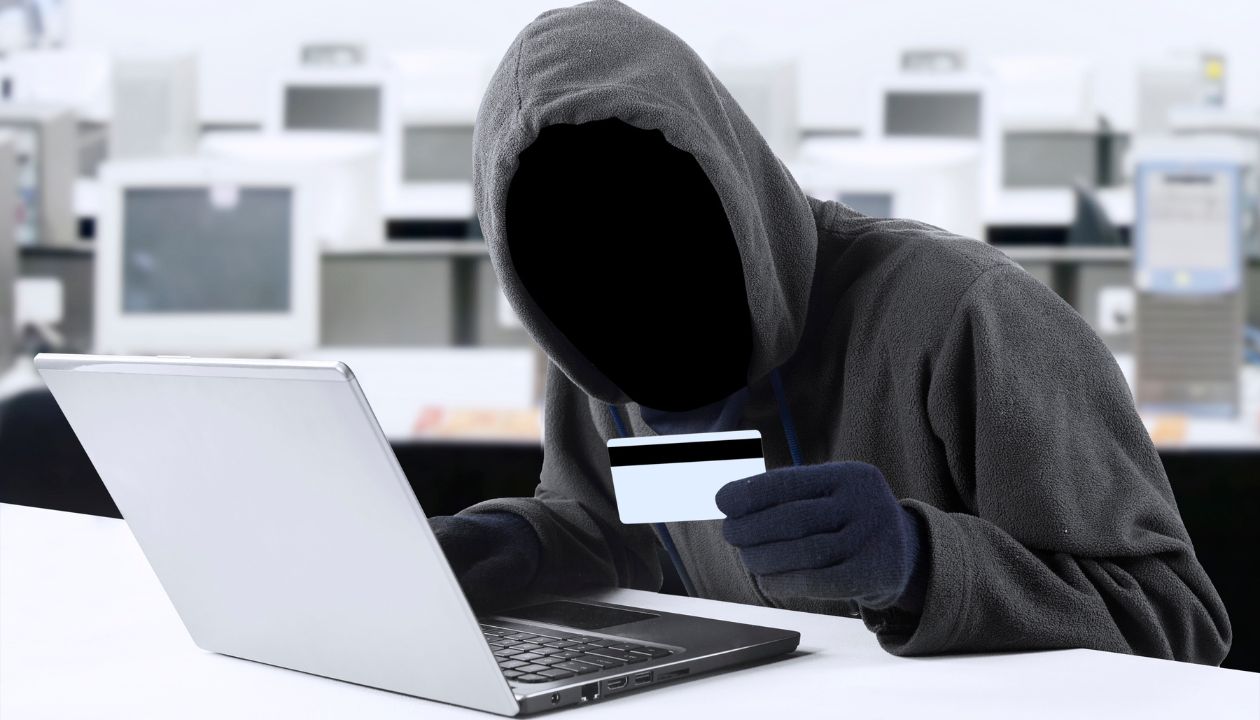
Reasons Behind Credit Card Frauds
More than 1.2 billion credit cards are circulating around the world. These come from various credit card issuers, including Visa, MasterCard, Discover, Diners Club, American Express and others.
While credit card issues and issuing financial institutions take every precaution to protect their systems against fraud, there’re some loopholes that criminals often use.
Secondly, a lot of credit card users are careless. So, it’s necessary to learn how to use a credit card before getting one. They use their credit card online from public computers such as cybercafés and workplaces.
And sometimes, they make online purchases by actually using the card at public places where criminals can note the number, Card Verification Code (CVC) or Card Verification Value (CVV) easily.
Thirdly, there’re instances when neither the issuer nor the credit card holder is responsible. This happens when criminals manage to get details by hacking into banks or store computers.
As you would know, a credit card is something essential nowadays. We may have plenty of money or may be short of cash.
Regardless, buying something on a credit card remains one of the best ways to pay, as long as you remain within spending limits and pay all dues on time. While getting a credit card is easy, keeping it safe from fraud needs some effort on our part.
Losses from Credit Card Fraud
Financial institutions, credit card issuers, police forces and investigators worldwide continue to identify various kinds of credit card fraud.
- That’s because credit card fraud worldwide rose by 18.4 per cent in 2024, while this number is expected to be higher in future and is under calculation.
- Banks and financial institutions worldwide lost a whopping $24.26 billion in 2024 to payment cards, including credit card frauds. The figure could be higher considering the number of unreported cases around the world.
- The US has the largest number of credit card frauds anywhere in the world. Over 38.6 per cent of all credit card frauds in the world occurred in the USA alone.
- Banks and financial institutions have to bear the cost of credit card fraud due to their consumer protection policies. Usually, the credit card issuer refunds the money to the cardholder if they can adequately prove fraud.
- Credit card fraud has an adverse impact on the victim’s mental and physical health. Therefore, it’s very important to protect yourself from credit card fraud.
I will discuss more about the losses due to credit card fraud when I explain what to do if you’re a victim. First, let’s look at the 15 common and different credit card frauds that occur around the world and can affect you too.
15 Different Types Of Credit Card Frauds
The US Department of Justice, Federal Trade Commission, Federal Bureau of Investigation, International Police Organization, and investigators around the world, along with banks and financial institutions, currently identify these 15 types of credit card fraud as common.
Therefore, I’m providing a brief description of how this credit card fraud occurs. This could help you protect your credit card.
1. Identity Theft & Credit Card Fraud

Identity is the fastest-growing crime in America and worldwide. It involves criminals getting hold of your personal details such as your national identity card, Social Security number, tax number, name, address and other details. Identity thieves look for your bank details too.
Once they have the necessary details, an identity thief impersonates you, opens bank accounts, takes loans or credit cards and steals from your health insurance and tax returns. FBI has a special identity theft division to investigate such frauds.
One of the ways of credit card fraud detection is if you’re an identity theft victim is by checking your credit score for free on Experian and other online services.
A sudden drop in credit score, calls from collection agents when you have no outstanding payments, and a lower health insurance limit caused by someone using your plan are clear indicators.
2. Credit Card Not Present Fraud
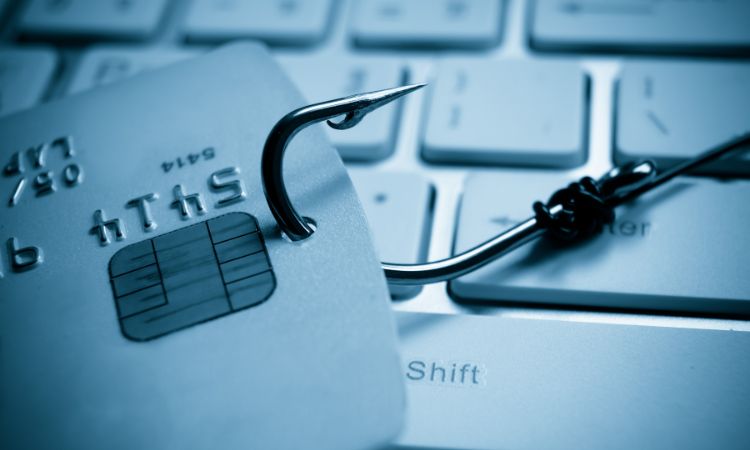
Credit Card Not Present fraud may sound like something very technical or rare. But that isn’t the case. In fact, it accounts for one of the highest amounts of money lost by banks and credit card issuers on frauds. This credit card fraud is very simple.
It happens when someone leaks out details of your credit card, especially the 16-digit number. There’re certain Point-of-Sale machines that don’t require the card to be physically swiped.
And there’re online stores, too, where only the 16-digit number is enough, without any additional verification of the user.
In such cases, your credit card gets debited for a large sum of money though the card is actually in your wallet. And this fraud can happen in some other countries while you’re relaxing at home or busy at work.
There’re several ways your credit card number can leak. A fraudster can note the number if you’re giving it on the phone. Or they can get it from some collaborator at a store, hotel or other merchants where you use the card.
3. Lost Credit Card Fraud
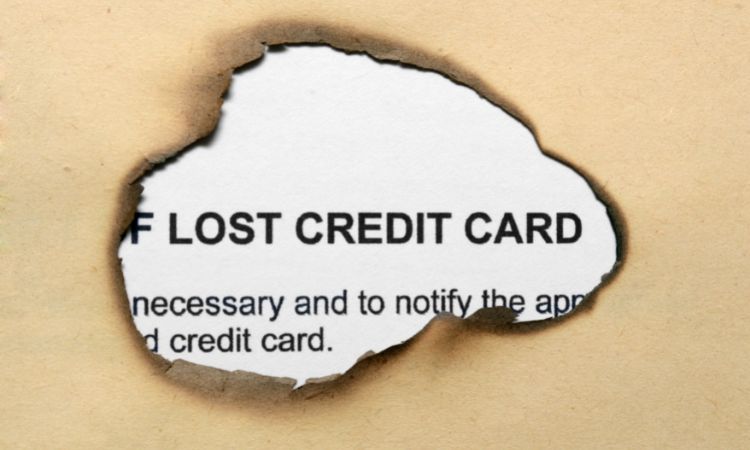
A lost credit card can land you in serious trouble. This happens because you won’t notice that a credit card is lost immediately.
And if you use a credit card occasionally, realizing that it’s lost can take a few days. The fraudster can play havoc until you report the lost credit card to the issuer or bank.
They’ll withdraw cash and make purchases with the card. Fraudsters know when a credit card is hot-listed by using a simple trick. They’ll try making an online purchase using your card details. When the payment doesn’t get through, the card is under the hot list.
Actually, a bank can hold you liable for all expenses that happen on a lost credit card. That’s because it’s actually your fault. You were careless about losing the card and allowed it to fall into the wrong hands.
Of course, some banks and issuers may take a lenient view because they’re aware that it takes some time for a person to realize that a credit card is lost. However, this is more of an exception than a rule in general.
4. Stolen Credit Card Fraud
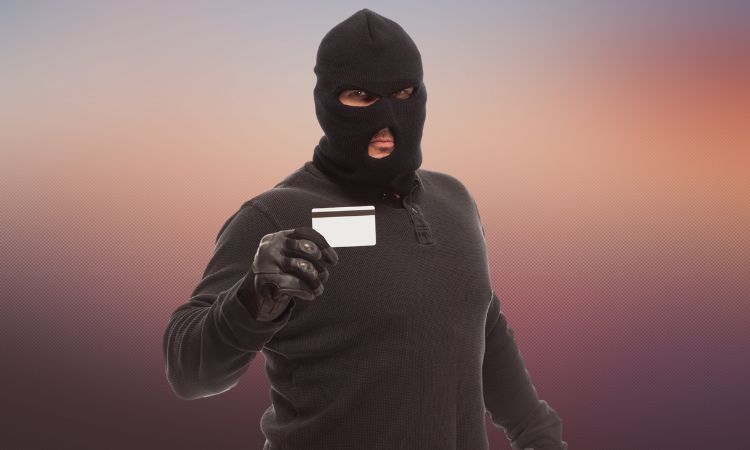
Things are a bit easier if your credit card is stolen and you realize that instantly. A fraudster will usually put your credit card to work almost immediately.
They’ll buy expensive stuff from brick-and-mortar stores, dine at expensive places and splurge at your expense. However, they can get easily caught if you’re alert.
That’s because the timespan between a card being stolen and its use is very short. Fraudsters want to make the best of it before the issuer hot-lists the card.
Usually, a credit card isn’t the only thing that would get stolen. It would be your wallet, purse or bag. And missing these things or knowing you’ve been robbed is very easy.
Report the theft immediately to the police. Generally, all police outposts and stations have customer care numbers for hot-listing a credit card.
And you can save these numbers on your cellphone or write them down somewhere you can get immediately or even memorize them.
There are instances when fraudsters that have stolen a credit card were arrested within an hour because they couldn’t wait to start spending.
And that’s usually the case- the distance between the spot where you were robbed won’t be far from where the fraudster makes the first purchase. Once you report the theft, you’re no longer liable for any expenses a fraudster may incur.
5. Credit Card Clone Fraud
A credit card clone may or might not affect you. If your credit card details are available in any manner to a fraudster, they can make a plastic clone using simple techniques.
In some cases, a cloned credit card would appear like a genuine one, though the issuing bank and country may be different.
And in some cases, these clones are crude plastic cards with merely the number, expiry date and other basic details printed to enable an online transaction.
If you notice unusual activity on your credit card, alert the issuer. However, in some cases, the credit card isn’t yours, but you might be the merchant.
The clone will pass off as genuine because most people are unaware of how credit card numbers work. Usually, the first four digits of a credit card number signify the bank and the nature of your account, as well as your location.
The sequence of the 16 digits is arranged on a credit card to make identification easier for the bank.
6. Electronic Swipe Fraud
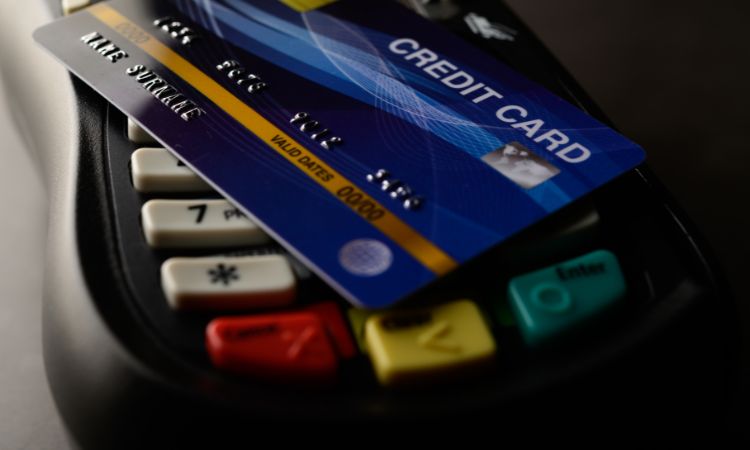
Electronic swipe fraud can be difficult for credit card fraud detection, and it could be hard to get your money refunded. Usually, these frauds happen at stores.
A fraudster might swap or wave your card separately for the same amount on two different POS machines. While one of these is to pay for your purchase, the other will help the fraudster shop free for the same amount.
Since both the purchase amounts are the same, these frauds often pass as errors. A bank might consider a refund if you dispute the expense, though you may have to answer questions about how the fraud occurred right under your nose at the store.
And merchants can get away with saying that the POS machine was faulty or the transaction was recorded by error.
7. Account Takeover Fraud
Account takeover frauds are part of the broader identity theft and are very serious. Here, an identity thief takes over all your bank accounts, insurance plans and other investments, and the credit card.
They will bleed your finances till they reach zero. Usually, these fraudsters will even impersonate you at banks physically, though at a distant location, to avoid recognition.
Usually, an account takeover means you won’t be able to access your own money. Account access codes for net banking, app banking and other financial transactions will be blocked because the fraudster will change passwords.
And often, they’ll sell off your investments while splurging money on your credit card with impunity.
8. Multiple Imprints Fraud
Here, a merchant will take two or more imprints of your credit card using the old-fashioned swipe machine. While you’ll sign upon only one of these imprints to pay for purchases, others will be used for fraud.
The most common excuse a merchant will offer is that imprints are unclear. This can also happen when the merchant or their staff takes your card to another room or out of your sight to make an imprint.
If you find any merchant taking more than a single imprint, demand and destroy the other ones immediately.
Even if the merchant or their staff crumples, tears or dumps them intact into a trashcan, take away the shreds and dispose of them by burning them. It’s very easy to copy the number of your credit card and use these imprints for fraud.
9. Collusive Merchants Fraud
Collusive merchant fraud is something that MasterCard reports on its list of common credit card frauds list. This isn’t common in America. However, you may fall victim to this fraud if you’re a frequent traveller to countries where they occur.
A collusive merchant fraud can be hard credit card fraud detection because it generally happens abroad, and you might not be able to check your credit card statement immediately. This fraud is also common with radio frequency interface cards.
A collusive merchant will wave your card near another machine while you’re not looking to make a small transaction.
It’s easy to prevent this fraud. Never let the credit card out of your sight, and don’t allow anyone to hold it near another device of any sort.
10. Email & SMS Offer Fraud

Often we get calls with the most tempting offers. These arrive in the form of an email or a telephone call that seems like a trusted source.
Beware of such emails and phone calls. These are usually from credit card fraudsters. They’ll make an offer that’s too good to be true. However, the condition is that you place the order instantly.
The fraudster, in this case, will ask for your credit card number, it’s CVC or CVV, on the phone or by email. Once you’ve given these details, your entire credit limit will be wiped out in less than a minute.
And strangely, you wouldn’t even learn about this until you try using your credit card someplace and find it’s rejected for lack of funds. Or when the issuer alerts you that your credit limit is over.
The only way to prevent this credit card fraud is by avoiding all such orders, no matter what the source or how reliable they sound on email or phone.
There are no ways to trace where an email or a Voice Over Internet Protocol (VoIP) call came from immediately.
11. Fraudulent Application
Fraudulent Application happens when someone applies for a credit card or even an add-on credit card by using your name or that of a close relative.
This usually occurs if you’re careless about disposing of paper bills, invoices and other documents that contain some of your personal and especially banking and financial information.
You might wrongly believe those old bills, invoices, or even envelopes are insignificant and dispose of them without tearing or shredding them in trashcans.
Or when you leave your important mail lying around the workplace or lost on mass transit and public transport systems.
If you find your credit score taking a hit and unpaid bills piling up at your place without any explanation, alert the police and bank immediately.
12. Phishing

A phishing scam usually happens when someone cheats you into parting with bank and credit card details. This can happen in many forms.
The most common among these are emails and SMS text messages that criminals send. These emails or SMS text messages appear very genuine and from some trusted source such as your bank or government organization.
They will either tempt you to take an offer or frighten you with some vague notice that says you’re liable or prosecuted.
The simplest ones are email or SMS messages asking you to provide credit card details because the issuer needs to update some records. Never give out such information by email or by SMS, chats on WhatsApp or Facebook Messenger or even LinkedIn.
13. Mail Intercept Fraud
Mail Intercept Fraud is a bit difficult for criminals. However, it’s very common, despite these difficulties.
Typically, mail intercept fraud means somebody will steal the packet containing your new or renewed credit card right from your mailbox, activate and use it. Or they can wait at the door while you’re away and actually sign for receiving the card.
Usually, mail intercept credit card frauds occur if someone gets hold of your email account because of a password leak or hacking.
A criminal note when you’ve requested a credit card and the date on which it would arrive at your place. Upon arriving at your doorstep or mailbox, they simply walk away with the packet.
To prevent mail intercepting credit card fraud, it’s best to collect the card from your bank or ask for delivery at your office address.
CCTV cameras also help police to track down culprits. If you remain unaware that your credit card was intercepted, the bills will start piling up without payment.
At this stage, too, you can help the police arrest the suspects by providing all details and filing a proper complaint with your bank.
14. Data Breach Fraud

Data breach frauds affect large companies. Some of the major data breaches include Facebook, Marriott International, AdultFriendFinder.com, First American Financial Corporation and Equifax, among others.
Elsewhere in the world, hackers got access to credit and debit card information from certain banks in India, Japan and South Korea.
A data breach fraud basically means that details of your credit card fall into the hands of hackers. With these details, they can withdraw cash or make purchases.
Normally, these frauds are on large scale and get publicity in the news. If you suspect credit card fraud, contact your bank and change the card.
15. Malware Fraud

Malware frauds are common if you’re using software that allows remote access to your computer or downloading software from unknown sources.
This malware installs itself on your computer and stores all your credit card and personal information. A criminal that has illegal access to your computer can easily get your credit card details and use them for making purchases or paying bills.
Heath Impact of Credit Card Fraud
Credit card fraud and identity theft leave the victim with one or more mental and physical health problems. And this occurs even after the bank waives the money or compensates a victim.
- Lack of sleep and sleep disturbances
- Higher stress levels without apparent reasons
- Problems with concentrating at work and home
- Frequent aches and fever without any real cause or infection, or allergy
- Heavy drinking or drug use
- Dependence on sleeping pills, ant-depressants and tranquillizers
- Lack of appetite
- Overall loss of interest in daily activities
- Tendency to self-isolate and overthink
- Looming fear and threat without apparent cause
- Moderate to severe depression
- Overall inability to trust others, including parents, spouse and children
- Forgetfulness
- Suicidal thoughts
Even as banks and financial institutions grapple with credit card fraud and identity theft, healthcare providers worry about the health burden on victims and the state.
The healthcare burden is estimated to run over $50 billion worldwide, according to various sources. This healthcare burden occurs due to free counselling and medicines that victims require.
Additionally, the burden on families, employers and society of credit card fraud and identity theft is unimaginable. It cannot be estimated in terms of money.
Who’s at Risk of Credit Card Fraud?
Interestingly, credit card fraud doesn’t strike everyone equally. People in their 30s face the highest risk, followed by those in their 40s. Women and men in the age bracket of 20 to 29 years rank third as the population most prone to credit card risk.
This could be due to their willingness to spend and unwanted urgency, causing them to leak out credit card details or give away details carelessly.
Women and men in their 50s and 60s are less prone to credit card and identity theft fraud. The incidence is least among under-19s and those above 70 years of age.
What to do if You’re a Victim of Credit Card Fraud
The first thing to do if you suspect you’re a victim of credit card fraud is to check all your statements to detect unusual activity and spending. If you notice any, alert the bank immediately. You will also have to file a police report as a safeguard.
If you’re getting calls from recovery agents and companies for exceeding limits or defaulting on credit card payments, contact your attorney and approach the FTC, FBI or other law enforcement agencies online or in person.
Provide specific details that would help all concerned to investigate and bring fraudsters to justice.
Check your home and office computer, smartphone and other mobile devices for malware or other software that could be leaking your confidential information.
Modern technology makes it simple to track these fraudsters, even if they’re operating from abroad.
And finally, ensure that you retain full access to all your bank accounts and investments. If you observe any unusual activity, immediately alert the bank or financial institution to freeze your accounts.
Closing Thoughts
Once you follow the steps above to report credit card fraud, you might have to wait a while before starting to use it again. This may sound unfair because of the inconvenience.
However, waiting is useful because it allows banks and law enforcement agencies to track down the culprits and bring them to justice.
Your action can save countless others from falling victim to credit card fraud. However, the best way is to exercise extreme precautions as I describe above, to prevent fraud.

He began his journey with affiliate marketing in 2004 and has since built multiple 7-figure online businesses through blogging, SEO, and automation.
With over 14 years of experience in content and more than 3 years specializing in AI automations and AI agents, Pritam now helps businesses and solopreneurs automate their operations, generate leads, and scale effortlessly using AI-powered systems.
Through his training and tutorials, he has empowered thousands to turn automation into income — making him a trusted voice in India’s growing AI and automation space.






